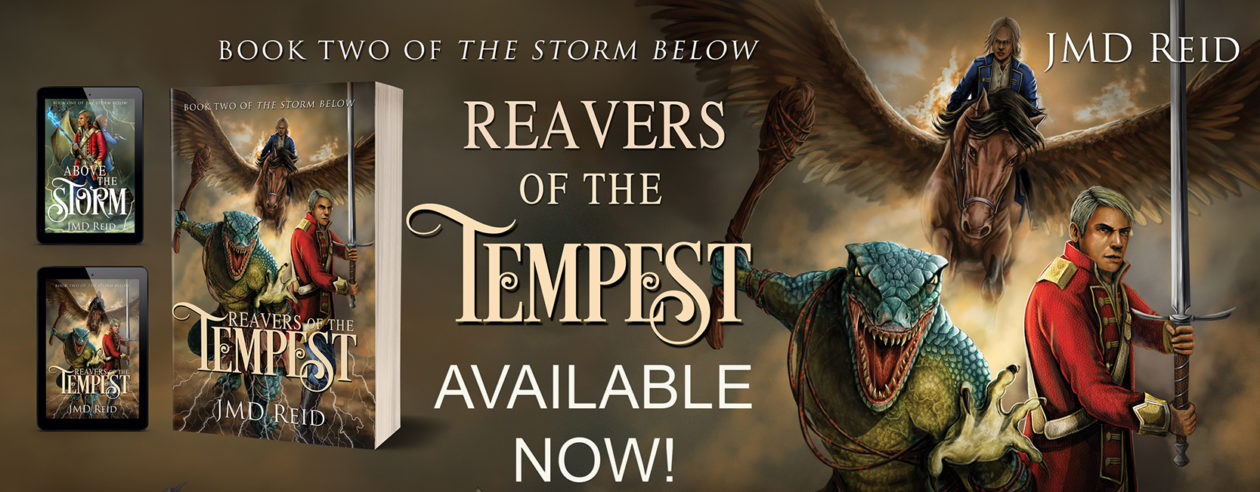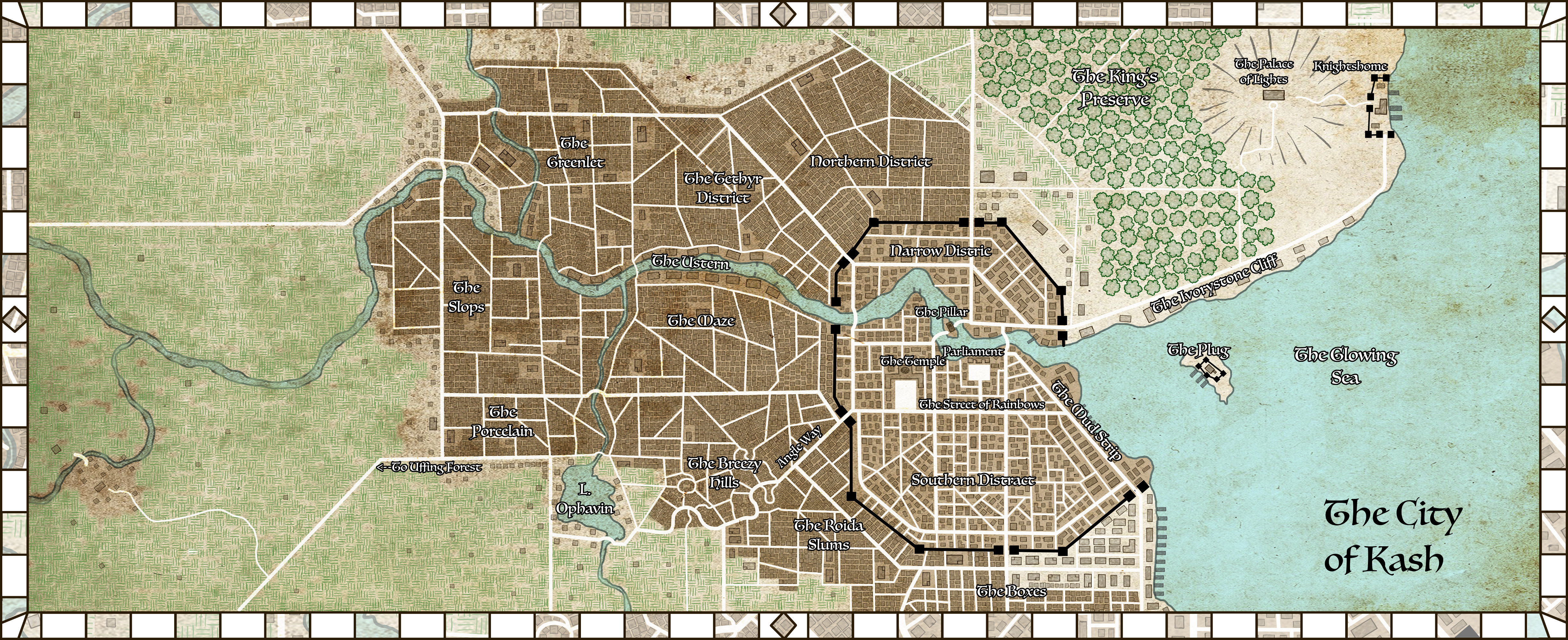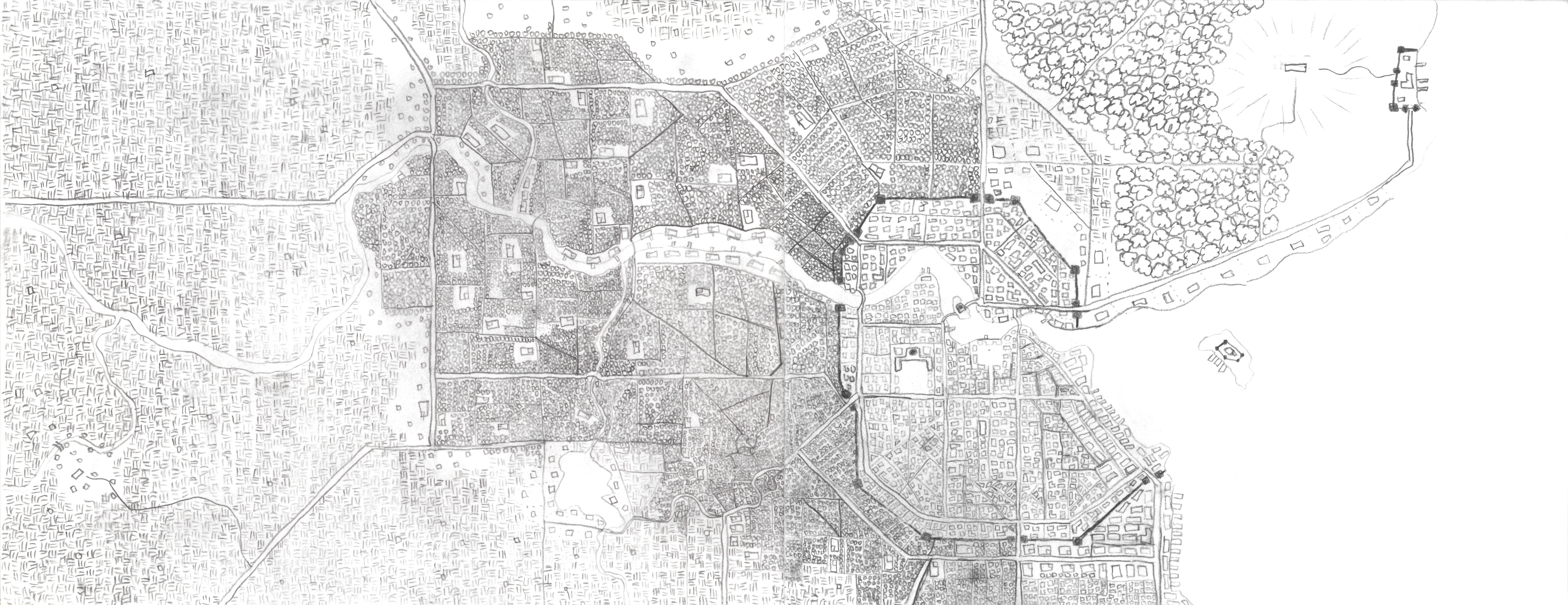Reread of The Aspect-Emperor Series
Book 1: The Judging Eye
by R. Scott Bakker
Chapter Eleven
The Osthwai Mountains
Welcome to Chapter Eleven of my reread. Click here if you missed Chapter Ten!
Since all men count themselves righteous, and since no righteous man raises his hand against the innocent, a man need only strike another to make him evil.
—NULL VOGNEAS, THE CYNICATA
Where two reasons may deliver truth, a thousand lead to certain delusion. The more steps you take, the more likely you will wander astray.
—AJENCIS, THEOPHYSICS
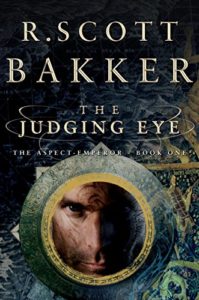 My Thoughts
My Thoughts
So Cynicata makes me think of cynic. And that is certainly a cynical view of people. And it’s so true. We are all the heroes of our own story, and we are all too quick to look at someone else and “strike” them. Make them evil. We’ll use bigot, or racist, or homophobic. Quick labels to let us feel comfortable in our moral superiority so we can maintain the fiction that we’re not just as evil as the man we labeled.
This leads us into the second quote which is about following delusional ideas. Going too far down the path of an idea can lead to so many problems. Look at any philosophy embraced by a nation-state or a tribe or a religion and see where it can go.
If you believe what we do, you’ll be saved. It’s moral for us to save unbelievers. So it’s moral for us to force them to believe so we can save them.
Currently, the Skin Eaters think they’re going to find riches at the Coffers. They need to reach the Coffers by midsummer. To do that, they have to get over the mountains now. But the passes are snowed in. So let’s go through the haunted and cursed Nonman mansion that scalpers disappear in all the time. We’re the Skin Eaters. We’re better than other Scalpers. We’ll be fine.
A bad idea leading to disaster combined with their moral superiority that they are better Scalpers than others. We see this at the end of the chapter with Sarl asking why the Skin Eaters hadn’t come to Cil-Aujas.
Early Spring, 19 New Imperial Year (4132 Year-of-the-Tusk), the Osthwai Mountains
The Scalpers have named the mountain ahead Ziggurat. They don’t know its real name. Cleric might have even forgotten that it is called Aenaratiol (Smokehorn), but Achamian remembers. Beneath it lies Cil-Aujas, the Black Halls. At the time, Achamian was willing to do this out his desperation to reach Sauglish by midsummer. But now he’s remembering that it’s a dangerous place. Only Golgotterath is worse.
The Skin Eaters have their own theories about the Black Halls, making up their own tales to explain Cil-Aujas had fallen. Achamian knows the truth and begins telling him that it was refugees who caused its downfall. He has the Bitten listening with the intensity of children, especially Xonghis. More than the Bitten join them. Even Sarl and Kiampas gather. Mimara sits beside him while the fire burns bright before them.
He talks about the Nonmen and how great they were back when Men were savages. Before the Tusk had been written. Back then, Cû’jara-Cinmoi had been their greatest king. But the wars with the Inchoroi left him broken, unable to resist the Five Tribes of Men who entered the world. Then he speaks of the First Apocalypse.
“If you want to look at the true ruin,” he said, nodding to the barren knoll where the Captain sat alone with his inhuman lieutenant, “look no further than your Cleric. Reduced. Dwindled. They were once to us as we are to Sranc. Indeed, for many among the Nonmen, we were little more.”
He talks about the Meöri Empire, the White Norsirai kingdom that ruled the wilderness on the other side of the mountains. What the Scalpers called the Long Side. Crushed by the No-God, their hero Nostol led his people to Cil-Aujas ruled over by its king, Gin’yursis. They join together and the two made a stand at Kathol Pass and stopped the Consult form crossing the mountains for a year. Despite their alliance, Nostol and his Meöri people came to hate the immortal and angelic Nonman. They coveted the Nonmen’s glory and used scriptures from the Tusk to justify their greed.
There are three versions of the tale. In one, Nostol and his thanes seduced the Emwama concubines, human slaves used by the Nonman as substitutes for their dead wives. He hoped this would spur the Nonmen to retribution. A pretext he could use to attack them back. Nostol was said to have personally impregnated sixty-three of them.
“Talk about farting in the queen’s bedchamber!” Pokwas exclaimed.
“Indeed,” Achamian said, adding to the chorus of laughter with the mock gravity of his tone. And there are no windows in the deeps of Cil-Aujas…”
In the second version, Nostol merely seduces Weyukat, the Nonman King’s favored concubine. She had twice gotten pregnant with Gin’yursis’s child but miscarried. Still, that was better than most. So when she comes up pregnant, he thinks it’s his. If she has a daughter, it could mean the salvation of the Nonman race. Instead, she gives birth to a child named Swanostol. The king killed the babe and Nostol had his outrage.
In the final version, Nostol ordered his men to seduce the Nonmen nobility and create friction and passion. Achamian thinks this one is the correct version since all this happened in a year, and that’s not feasible for all these pregnancies and births to occur. He also has seen scraps from Seswatha’s dream that bears it out. However, they all end in the same way.
War.
In the darkness of the underground mansion, the Nonmen sorcerers unleashed their Gnosis on men bearing Chorae. It was a bloody fight. At the end, drenched in gore, Nostol and slain Gin’yursis and sat on the dead king’s throne. He wept and laughed at his deed.
“With courage and fell cunning,” Achamian said, his face hot in the firelight, “Men made themselves masters of Cil-Aujas. Some Nonmen hid, only to be found in the course of time, but hunger or iron, it mattered not. Others escaped through chutes no mortal man has ever known. Perhaps even now they wander like Cleric, derelict, cursed with the only memories that will not fade, doomed to relive the Fall of Cil-Aujas until the end of days.”
Galian says he’s heard this story. It’s why Galeoth are “cursed with fractiousness” since they’re descendants of Nostol’s people. However, Achamian says that Gin’yursis cursed all men, blaming them all for what happened.
“We are all Sons of Nostol. We all bear the stamp of his frailty.”
The next morning, they continue on with little conversation. They are approaching the Ziggurat with trepidation. They follow the hilly Low Road around the mountain’s base, the trees growing more and more scraggly. By noon, the Ziggurat dominates the sky. “They tramped onward in a kind of stupor.” Not even Mimara is drawing eyes as the weight of that height presses on them. The mountain is impossible to ignore. “The Skin Eaters, each in their own way, seemed to understand that this was the prototype, what tyrants aped with their God-mocking works, mountains into monument, migration into pageant and parade.” The mountain is too old and vast for any word to capture it.
The mountains proclaim that they are small. They keep advancing and soon, as noticed by Sutadra, they are walking an ancient road. Instead of being good news, it only troubles them more. The weight of history rises around them. “There was comfort in a simple track, Achamian supposed, an assurance that the world they walked did not laugh at them.”
After a few hours, they round a bend and see the entrance. A tall wall gouged into the mountain. They have reached the Obsidian Gate. They gather beneath it, dwarfed by its size. They are not prepared for the stories. They stare at it “like emissaries of a backward yet imperious people trying to see past their awe.”
Nothing bars the way into the abandon mansion. Every bit of the walls is carved with images of the Nonmen. From warriors fighting beasts to captives. Even in ruins, the scale of the carvings, its grandeur and detail, beggars them. This is something beyond human skill.
For the first time, Achamian thought he understood the crude bronze of Nostol’s betrayal.
Mimara asks what they are doing. Achamian thinks they are reflecting on mankind. Then Xonghis points to one pillar carved with the markings of other scalper companies. They gather around and see which companies have braved it. The most recent one belongs to the Bloody Picks who left a fortnight ago. They remember the member of that company they passed on the way here.
The following silence persisted longer than it should. There was a heartbreak in this furtive marks, a childishness that made the ancient works rising about them seem iron heavy, nigh invincible. Scratches. Caricatures with buffoonish themes. They were so obviously the residue of a lesser race, one whose triumph lay not in the nobility of arms and intellect, but in treachery and the perversities of fortune.
Kiampas spots the High Shields sign and says he’s right, they did die in there. Sarl disagrees, saying they died on the Long Side. Then Sarl scratches the Skin Eaters’ sign on it. Sarl then asks why they waited so long to come here. The Skin Eaters were legends as was this place. It was fate they should meet. “Such was the logic.”
His [Sarl’s] face pinched into a cackle. “This is the slog of slogs, boys!”
Cleric just enters the gate and starts turning before yelling, “Where are you.” He is disgusted no one guards the gate. He seems old and frail, confused. Only the strength of his Mark reminds Achamian of his power. Ironsoul claps a hand on Cleric’s shoulder.
“They’re dead, you fool. Ancient dead.”
The cowled darkness that was his face turned to the Captain, held him in eyeless scrutiny, then lifted skyward, as though studying the lay of illumination across the hanging slopes. As the gathered company watched, he raised two hands and drew back, for the first time, his leather hood. The gesture seemed obscene, venal, a flouting of some aboriginal modesty.
He turned to regard his fellow scalpers, smiling as if taking heart in their astonishment. His fused teeth gleamed with spit. His skin was with and utterly hairless, so much so that he looked fungal, like something pulled from forest compost. His features were youthful, drawn with the same fine lines and flawless proportions as all his race.
The face of a Sranc.
Cleric acknowledges reality. He’s crying and laughing.
Night falls. There’s not much fuel for a fire here, so the entire company shares one. It’s a miserable night with only Sarl’s mad declarations rising above muttered conversations. Fear is palpable, especially when some claim that the carved images are changing in the flickering camp light. Sarl mocks them by claiming he saw one turn into something sexual. This makes them all laugh as Sarl ensures dread is kept at bay.
Achamian keeps glancing at Cleric, realizing that the ruined mansion and the Nonmen are the same. Both as “old as languages and peoples.” Mimara leans against him unlike her mother who liked to hold his hand. She speaks with Soma. Achamian starts listening to their conversation. Soma says she acts like a lady of noble birth, but she replies that her mother was a whore. Soma shrugs, not caring. He’d burned his ancestor list. She asks, mockingly, if that frightens him. He asks how. She points to the others and says they’re vicious men who have some record of their fathers, an unbroken line of fathers. He asks why that should be frightening.
“Because,” Mimara said, “it means they’re bound to the unbroken line of their fathers, back into the mists of yore. It means when they die, entire hosts will cast nets for their souls.” Achamian felt her shoulders hitch in a pity-for-the-doomed shrug. “But you… you merely wander between oblivions, from the nothingness of your birth to the nothingness of your death.”
“Between oblivions?”
“Like flotsam.”
“Like flotsam?”
“Yes. Doesn’t that frighten you?”
Achamian starts scowling at the Nonmen friezes. The hundreds watching them. It’s like proof of souls. That sends him to stare at Cleric again. Nonman returns the stare. It’s sparked by an exhausted kinship and is broken without “rancour or acknowledgment.” Then he hears Soma admit it does frighten him. Mimara says of course it does. Soon, all taking dies down. Men find their bedrolls.
Few slept well. The black mouth of the Obsidian Gate seemed to inhale endlessly.
In the morning light, the ruins are more sad than scary. Still, they ate in silence. They force a semblance of normalcy to calm their nerves. The fire burns out, forcing Achamian to boil water for his tea with sorcerery. Xonghis speaks with Kosoter than they enter the “Black Halls of Cil-Aujas with nary a commemorating word.”
Achamian, with Mimara at his side, gives a final glance at the sky before he follows the others in. He spots the Nail of Heaven which “twinkled alone in the endless blue, a beacon of all things high and open…”
A final call to those who would dare the nethers of the earth.
My Thoughts
Smokehorn does not fit with a mountain that’s a flat top like a Ziggurat. Horns are pointy. It makes me wonder why the Nonman would choose that. Is it a shield volcano that blew its top off and the nonman saw that? A smoking horn and now it has crumbled to a flat top? Maybe the story will explain it and I’m speculating needlessly.
Wonder if we’ll ever find that missing tribe. Norsirai, Ketyai, Satyothi, and Scylvendi. One, I believe, is missing. Some think they stayed over on the other side of those mountains in Eänna and didn’t enter Eärwa.
We get a very classic tale, two races coming together to stand up against the darkness. They prevail, but instead of ending in a great and enduring friendship like in many fantasies, Bakker turns it to the dark. To the twisted ambitions and frailty of the human soul. Men are ever jealous of those greater than them and scheme to pull them down into the muck. We see it all the time in our world under the guise of “progress.”
The story also reminds me of the Fall of Gondolin in the Silmarillion. An underground city betrayed and destroyed out of jealousy. Though it was an elf jealous of a human. Still, we see that same sort of tragedy that was common in the ancient tales and has fallen out of favor in modern times.
I think it’s clear why the last story survived. What warrior wants to be remembered as a seducer of other men when they could boast of cuckolding their enemy and stealing their future as well as their lives.
Some great description to the lead up to the Obsidian Gate and then its carving. Bakker really captures the epicness. As someone who lives in the sight of Mount Rainier, which looms the way the Zigurrat does, I understand what he’s describing.
It always does feel like what the people did before us is more impressive than today. More grand. More profound like each generation of man has grown more buffoonish. And now you have these men faced with the works of a long-lived race. Even before the Womb Plague, the nonman had long, long lives. They had the time and patience to build such monuments.
And all the scalpers can do is shitty graffiti.
Hubris is something you have to watch out for. Sarl is full of it. The Skin Eaters are the best, so they’ll do what all these other companies failed to do.
Erratics are Nonmen with Alzheimer. In that moment, Cleric was in the past. He can’t tell the difference. It’s sad. He’s losing himself. The only problem, he has a young body and powerful sorcery. That’s what makes the Erratics so dangerous.
The description of Cleric is haunting. Especially that last part: the face of a Sranc. It’s one of those parallels with Lord of the Rings. The orcs were elves twisted into monstrous beasts. The Sranc were based on the Nonmen. We also get hints that the nonmen are some sort of fungal-based life. Not mammalian at all. Not sure if that’s true. They can reproduce with humans. In the real world, that would mean they were very close genetically. Even if the breeding is rare, it can happen. But this is fantasy where you get cross-species reproduction all the time.
Interesting that Soma, our skin-spy, talks about destroying his ancestor list. Mimara explains to us that it means for their culture. That your ancestors look out for you in the afterlife and make sure you’re not lost. But the Consult wants oblivion. That is what they want there to be when they die. They don’t want to suffer for eternity. In fact, it’s the same goal that Kellhus will be working for. But he just doesn’t want to destroy the world to do it. My theory, anyway.
It’s so anticlimactic as they finally enter the ruins. After a night of stress, the reality of their worries is underwhelming. Almost a disappointment. Little do they know…
Okay, the Nail of Heaven is bright enough to be seen in daylight. I really, really want to know what this is.
Click here for the next part!
And you have to check out my fantasy novel, Above the Storm!
~~~~~~~~~~~~~~~~~~~~
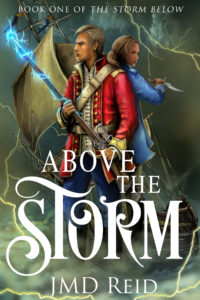 When the Stormriders attack …
When the Stormriders attack …
…Ary’s people have little chance.
Can he find a way to defeat them?
At 19, Ary has spent ten years mourning his father’s death. The aftermath of the attack still haunts him. Now, on the eve of the draft he faces his greatest fear, being sent to become a marine.
He knows the cost of war.
All he wants is to marry Charlene, who he has loved since they were kids. Building a farm and starting a family sounds perfect. There’s just one problem, his best friend Vel adores her, too. He’d give anything for peace.
But wanting the Stormriders to stop attacking…
…isn’t going to make it happen.
For love, for his people, and especially for the life he wants, Ary makes a decision that will change everything.
The adventure begins.
You’ll love this beautifully creative dark fantasy, because James Reid knows how to create characters and worlds you’ll grow to adore.
Get it now.
You can buy or burrow Above the Storm today!
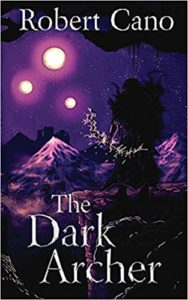 All he wanted was the safety of his princess. What he received was eternal torment. Bereft of a soul, a wraith who should have no ties to humanity, Bene wants nothing more than release from his twisted existence. Trapped between life and nothingness, he hopes to reclaim his soul and find the death he so desperately desires. Bene finds rare solace in the company of Feorin, a satyr war hero who chose exile over continuing the centuries long war with the Fae. He doesn’t look at Bene with fear or contempt, but rather hope. If a wraith can find a path to redemption, perhaps he could as well…
All he wanted was the safety of his princess. What he received was eternal torment. Bereft of a soul, a wraith who should have no ties to humanity, Bene wants nothing more than release from his twisted existence. Trapped between life and nothingness, he hopes to reclaim his soul and find the death he so desperately desires. Bene finds rare solace in the company of Feorin, a satyr war hero who chose exile over continuing the centuries long war with the Fae. He doesn’t look at Bene with fear or contempt, but rather hope. If a wraith can find a path to redemption, perhaps he could as well…
